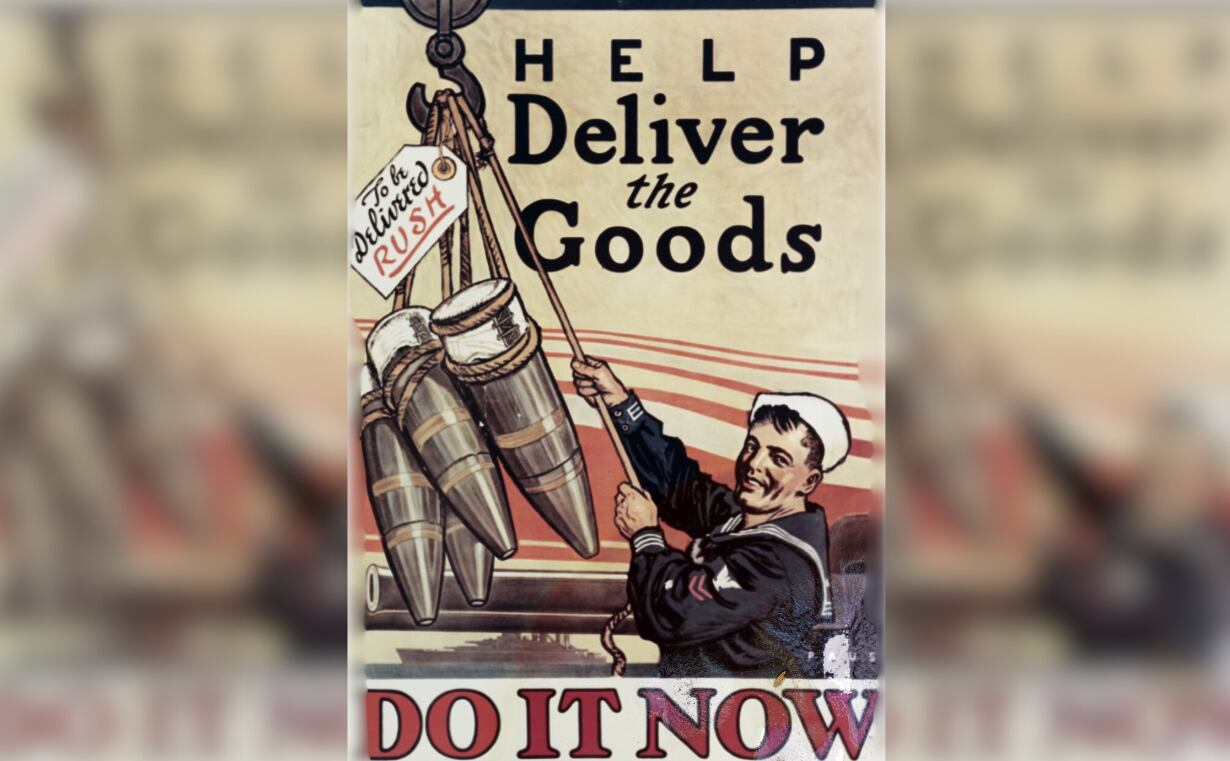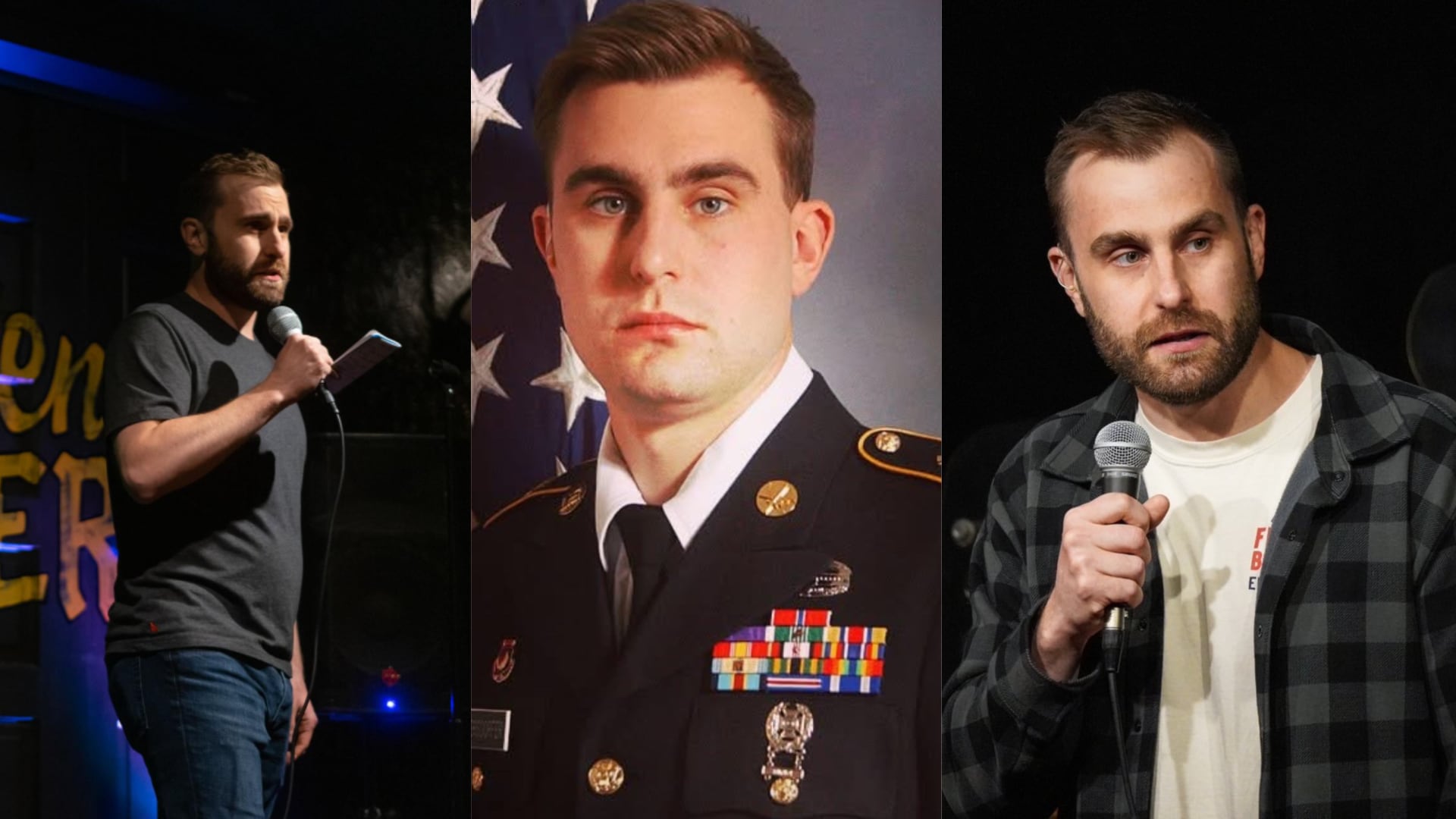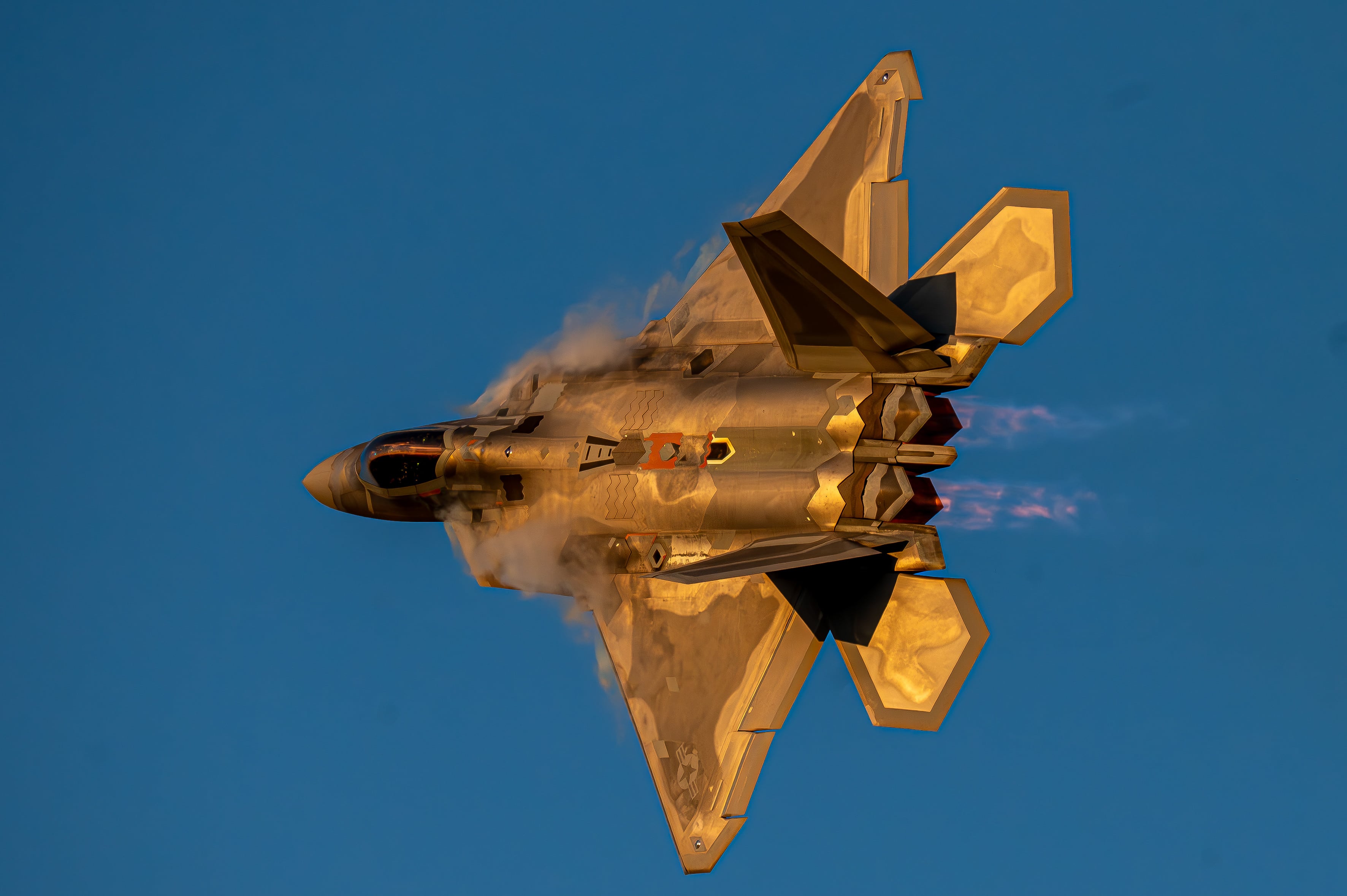“Beetle Bailey,” the comic strip centered around the perpetual goof-off and disobedient Army private, celebrated its 70th anniversary on Sept. 4.
Created by Mort Walker as a college themed strip in 1950, the strip follows Pvt. James “Beetle” Bailey and his Army buddies at Camp Swampy. It first became military-themed at the dawn of the Korean War, when Walker decided it was time Bailey enlisted in the Army.
The strip is now penned by Walker’s sons, Brian, Greg, and Neal, who told Military Times they are about to sign a new 10-year contract with King Features to keep the strip going.
Military Times caught up with the brothers in a Zoom interview to discuss the history and future direction of the comic.
(Some questions and answers have been edited for brevity and clarity.)
MT: Obviously, there have been a number of changes in the military over the past 70 years. What’s it like to keep up with all that?
GW: We don’t try too hard. You have to try to keep up with some things because things look funny if you don’t change, like rotary dial phones ... now they have cell phones or, you know, office phones. But Camp Swampy is kind of stuck in time. You know, the Jeeps look old and the tanks look old and it’s kind of like the Pentagon has forgotten about them or something.
MT: Is it based on a real post?
GW: My dad was at Camp Crowder in Missouri. And if you look at pictures, some of it is preserved. But you look at some of the buildings ... that’s exactly the way my dad drew it.
BW: The Army used to send my father all this research material, like photographs of the latest tanks and Jeeps and things like that. And he realized after a while that that Camp Swampy isn’t really a real Army camp. It’s sort of a daydream of an Army camp.
RELATED
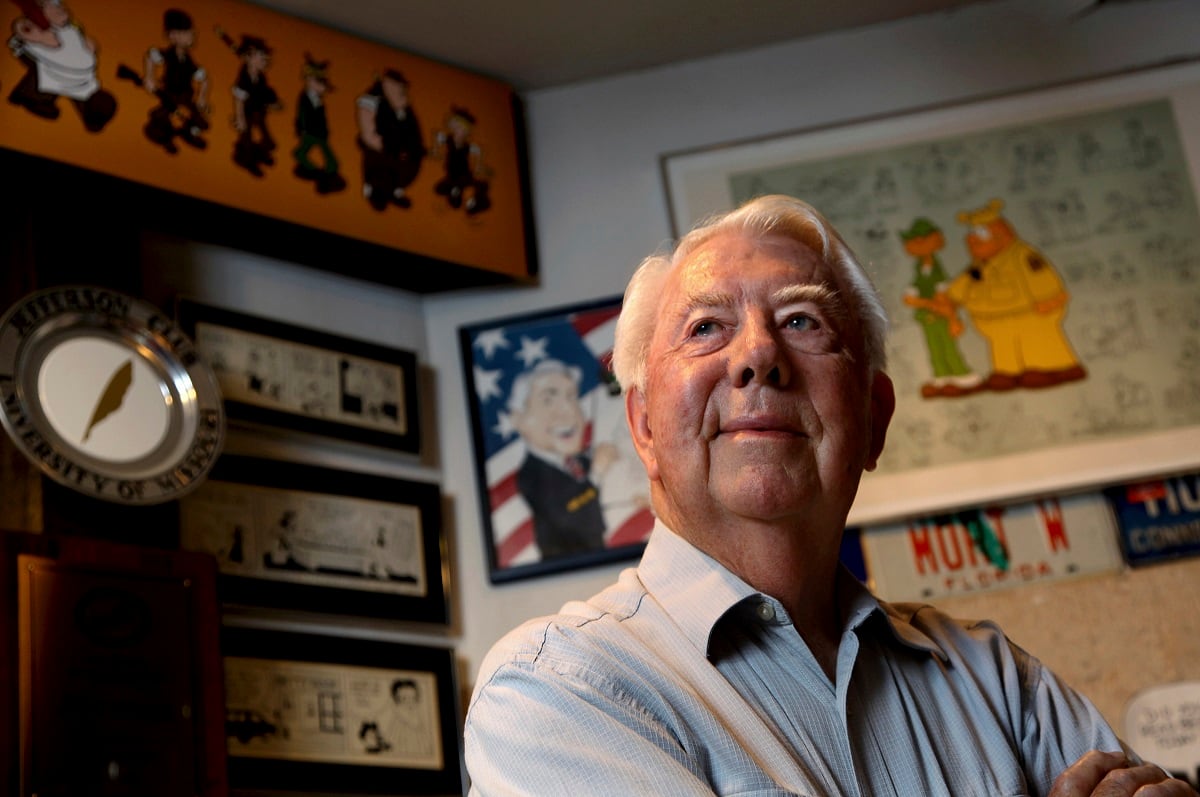
MT: What has it been like taking over and continuing the cartoon?
GW: You know, we always lived with it. So, it’s kind of ingrained in us. We know the characters so well, having grown up with them, that he offered to let us write. I started writing way back in like 1968 when I was in college. I’d make some beer money by writing gags. And then I just kept doing it and moved into comic books and did that for a while. And then an opportunity came up to do a Sgt. Snorkel spinoff. I did that ... and it kind of trained me for Beetle. And then finally, one day my dad says, ‘You want to work on the strip?’ And I said, ‘Yeah, regular paycheck. I’ll take it.’
BW: I’ve been working on the strip since the early 1980s. And then he asked me to start writing gags, so, we’ve both been doing this for a long time, and we had many, many years, up until recently, of being able to work with my father and with Jerry Dumas, who worked with my father for over 60 years. So, I learned a lot by just sitting with with Mort and Jerry and Greg and discussing, ‘Would this happen? Is this something Beetle would do? Is this believable for the characters?’
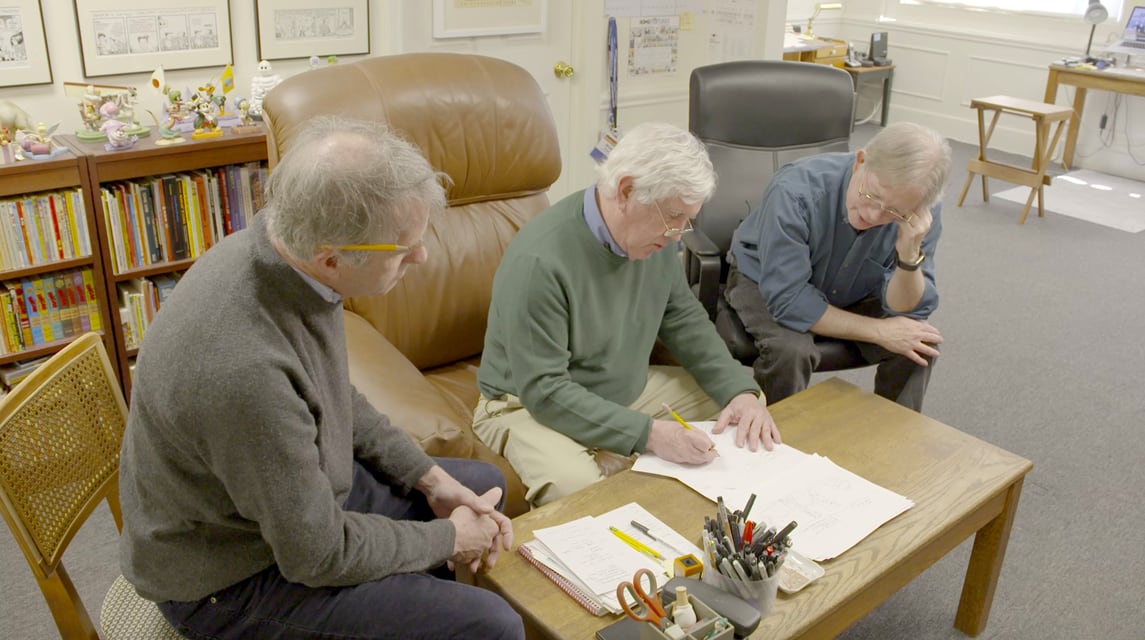
MT: Let’s talk about some of the changes that have taken place. Talk about Lt. Jack Flap, the strip’s first Black character. What was that process like, as well as the reaction?
BW: I think my father had seen, certainly in the late ’60s, early ’70s, that a large proportion of enlisted men were African American. And if he wasn’t [reflecting that] he wasn’t really portraying a realistic version of the Army. But it was tricky, because the syndicate kind of warned them that they might lose some papers in the South, or certain people might object. And you sort of struggle with it. The story he told was that he woke up in the middle of the night once and just came up with this idea for this sort of cool Clyde character who was a little bit inspired by Walt Frazier, who played basketball for the New York Knicks. And so, rather than making him lazy like Beetle or fat and angry like Sarge, he made him an officer and ... a cool guy, pretty smart, very capable, and at least tried to avoid stereotypes. And it went over really well. I mean, he had fans in the South, people that would send them gifts and cakes and bake things for him. They loved that character.
MT: Was there any pushback or objection by editors, or negative reaction by readers?
BW: I was talking recently to a very good friend of ours, Ray Billingsley, one of the few African American cartoonists in the business. He does the comic strip “Curtis.” And he said, ‘You know, I always liked Lt. Flap. He was a brother.’ And I sort of took that as the ultimate compliment that my father had created this character that that African American readers responded to.
MT: There was also an entirely separate issue about belly buttons, right?
GW: Yeah. Particularly in Miss Buxley’s case. If she was in a bikini, my father would just put a belly button in there. And King Features thought, ‘We can’t do that. We can’t show that.’ So they kept taking them out when he would put them in. And then finally he sent something to them where he had belly buttons all over the place.
BW: That was probably the ’70s. Even in comic books, I think they had a thing back then about showing men’s nipples. I’ve talked with Colin Murphy, who worked with his dad on “Prince Valiant.” When the guy was bare-chested, you know, he couldn’t have any nipples. It looks bizarre.
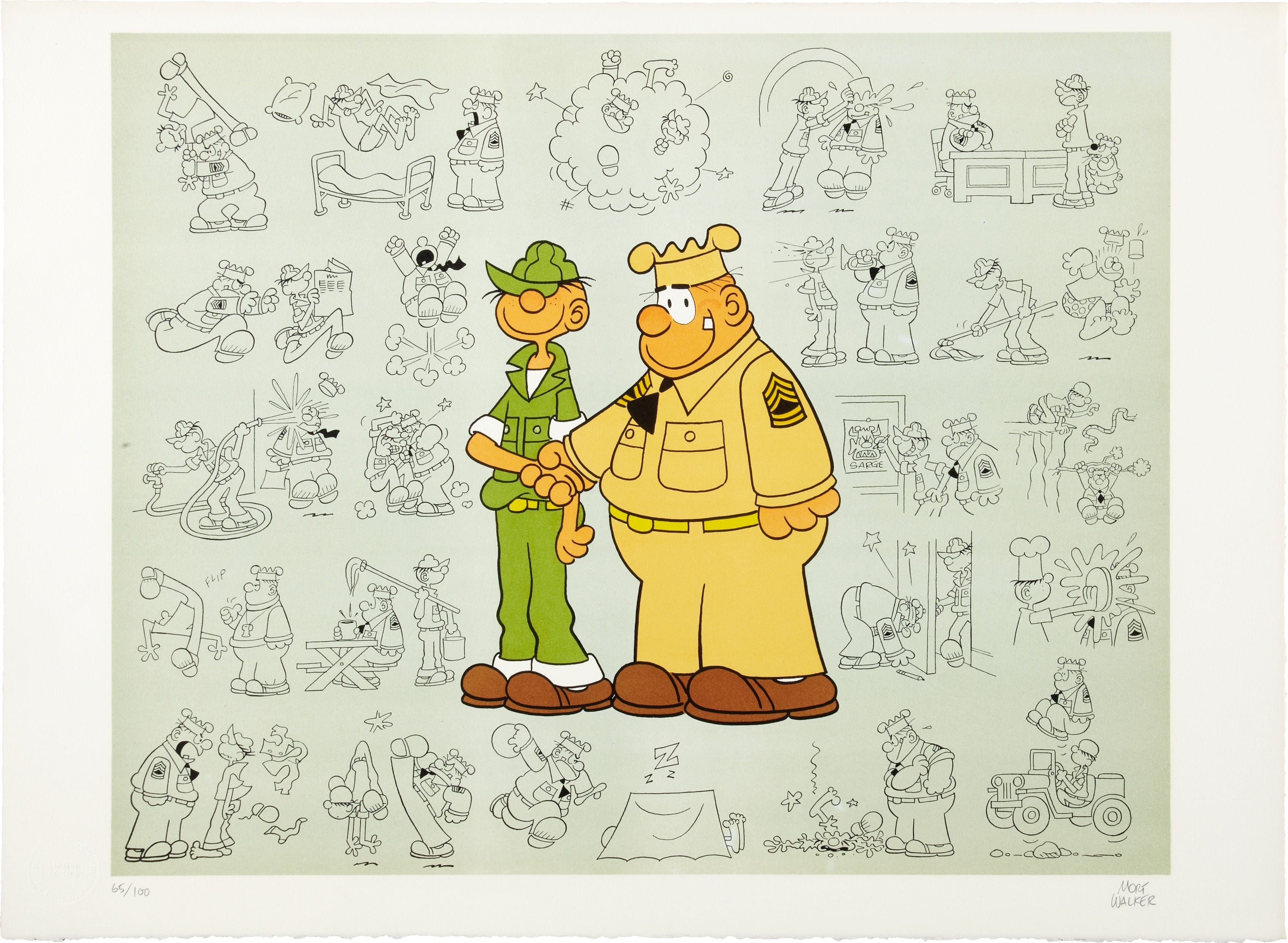
MT: You raised the issue of Miss Buxley. That brings me to the question of Gen. Halftrack. He’s always kind of ogling Miss Buxley, at least before he goes to sensitivity training. Talk about that whole issue.
BW: Well, I think when he first introduced Miss Buxley, it was a chance to have a pretty girl in the comic. There weren’t really many female characters in the strip. And she’s not, you know, an enlisted character. She’s a secretary for the general. The joke was, with the general being elderly he’s kind of over the hill, and to have this kind of pretty girl working in his office is very distracting for him. I would say for a good eight or 10 years there really weren’t that many objections. Then people started accusing them of sexism and saying the general’s attention was a form of sexual harassment. So, he started toning it down over the years. I mean, the general never really put his hands on her or chased her around, but at one point, the syndicate suggested we could get rid of the complaints if we just got rid of the general. My father came to the writers and said, ‘OK, we’re gonna cut the general out of the strip.’ And we were, ‘No, no, you can’t do that, because there would go all the golf gags.’
I think it was my daughter’s husband who said, ’Well, I work in the corporate world and we would send somebody like that to sensitivity training.’ I thought it was a dumb idea, but it actually worked.
MT: Will Beetle ever get deployed?
BW: He enlisted during the Korean War, but he’s always been in boot camp. He didn’t go to Vietnam. He didn’t go to Iraq or Afghanistan. We just felt that that would probably get too serious.
MT: I guess there’s a tension between keeping the strip the way it was and the modern era. Maybe you guys can do a couple things to modernize it. Maybe he gets deployed and he wanders off of the FOB, you know, Beetle Bergdahl. Or maybe he finally retires and he goes to the VA. Any thoughts about doing anything like that?
BW: It doesn’t sound very humorous to me.
GW: Maybe when we finally decide to retire we’ll have Beetle leave the military. Who knows what might happen.
MT: Will we ever see Beetle do TikToks like some of the troops are doing now?
GW: Well, we’ve had them on Facebook and Instagram and various things.
MT: There is a controversy right now with an Army second lieutenant using TikTok and making a Holocaust joke. Troops have been accused of being overly sexual in some of these videos. It’s creating a great deal of discussion in the military community about how to communicate over these more modern means of communications.
BW: Sounds like a good idea. Maybe we could do a gag. I’m not sure if it’s run yet or it’s coming up soon, but there’s one where Sarge butt-dialed somebody. He doesn’t realize it and he’s lost in the woods. So, we try to bring modern things like that into the strip. I’m not that familiar with TikTok. You have to kind of keep up with this stuff.
MT: It’s definitely used for gags, dark humor, sexualized humor. But there is also a lot of dancing.
BW: Dancing is something that can be funny. We’ve done some jokes about Sarge dancing. Sarge is very shy around girls, which I think is kind of a funny aspect of his personality.
MT: So, maybe Sgt. Snorkel uses TikTok?
BW: That sounds like a thing. Thanks for the idea, we’ll send you a check.
MT: Do you think Beetle has any aspirations for Space Force?
BW: I think that’s a good idea, too. I just watched that Steve Carell show on Netflix and it was pretty funny. There’s definitely some humor there.
GW: Yeah, maybe we should hire you as a gag writer.
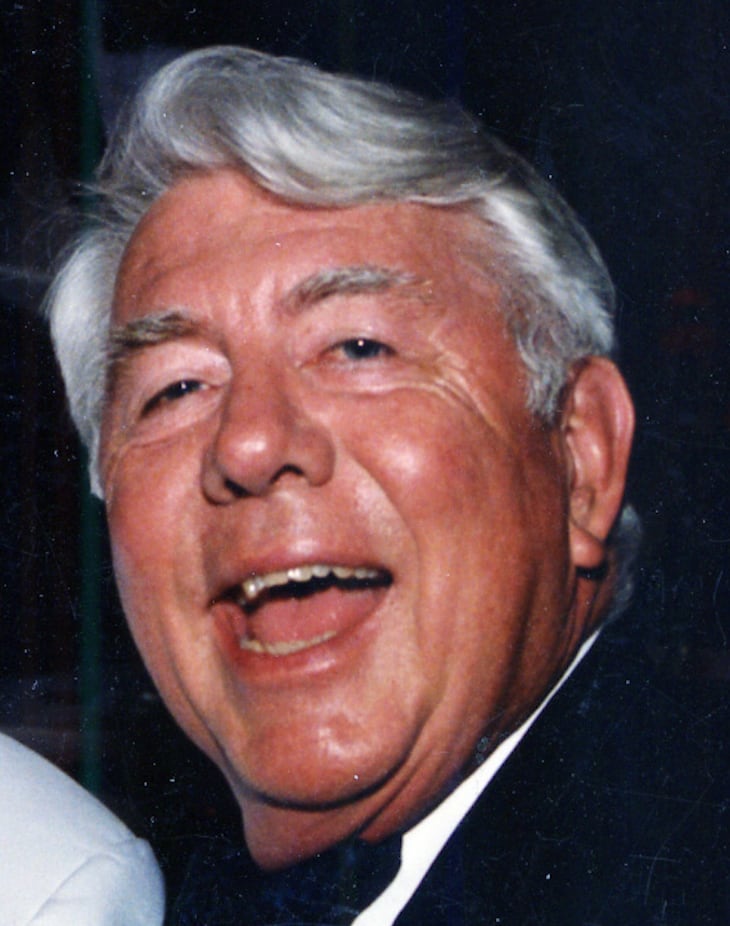
MT: In doing research for this interview I saw an email or letter to the editor in the Portland Press Herald asking the editors to get rid of Beetle Bailey, saying it was dated, sexist and unfunny. What’s your response to that?
GW: People have their own opinions. There are people who say, ’Oh, you’re unfunny, you should quit.’ One time, when my father was still alive, someone wrote, ‘Your father should quit and just go off and kill himself.’
You get people online who think you’re not a real person and they say whatever they want. You confront them and they back off. Some people like the strip, some don’t. That’s true of almost anything. People have their opinions, but we also get a lot of positive feedback from people who love it.
BW: Strips like “Beetle Bailey” are often called legacy strips because they’ve been around for so long. And when you work on a strip, you’re kind of torn between trying to create something new and fresh. Then people say, ‘Oh, I’ve been reading this strip for years. Please don’t change anything.’
And then if you do repetitive gags — we have certain things in the strip where Sarge falls off a cliff ... or Beetle’s peeling potatoes — people say ‘Oh, I love that whenever you do that.’
We really appreciate our readers in the military because we’ve always had a very positive response from the armed services. Always. There’s a lot of government workers and I think they see the sort of pointlessness of working in an organization like Beetle does in the Army, just doing the same thing over and over again. And the bureaucracy of the military establishment and the hypocrisy of officers — all the rest of it. My father always said, ’Beetle Bailey isn’t just a strip about the Army. It’s a strip about humans in organizations that have jobs to do, and there’s a pecking order and everything about it.’ So, we really appreciate the readers who respond to that.
MT: We just came out with a poll of active duty service members asking who they will vote for in the upcoming presidential election. Who will James “Beetle” Bailey vote for in November?
BW: We try not to get political. You know, it’s tempting sometimes to throw in a Trump joke now and then but, you know, we’re gonna end up angering 46 percent of our readers. So, stay away from that.
GW: It’s Beetle’s private decision who he’s voting for. We wouldn’t dare ask him.
Howard Altman is an award-winning editor and reporter who was previously the military reporter for the Tampa Bay Times and before that the Tampa Tribune, where he covered USCENTCOM, USSOCOM and SOF writ large among many other topics.
Tags:
Beetle BaileyCamp SwampySgt. SnorkelGen. HalftrackMort WalkerGreg WalkerBrian WalkerNeal WalkerIn Other News





